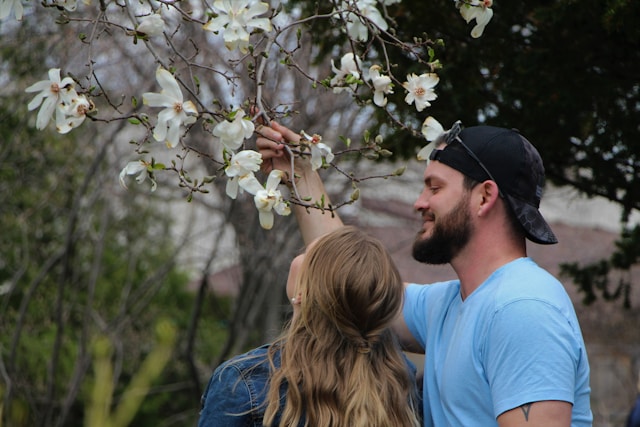
We are inundated with stimuli all the time in our fast-paced, technologically advanced environment. Emails and social media notifications pop into our inboxes, and we feel an immense need to respond right away. We may find it difficult to make wise decisions and that this conditioned hyper-reactivity is harmful to our overall health. “Learn To Sit Back And Observe. Not Everything Need – Tymoff”,One of the most important skills for navigating the complexity of life is learning the art of non-reactivity, which involves choosing our responses thoughtfully rather than reacting impulsively.
The Harmful Effects of Reactivity
The amygdala, the brain’s primitive fear region, is frequently the source of our reactivity. It sends us into a fight-or-flight response when activated, which causes a spike in stress chemicals like cortisol. This might result in:
Making poor decisions: Reacting quickly might impair our judgment and make us forget important details.
Emotional dysregulation: Angry, nervous, or frustrated sensations can be made worse by overreactivity.
Tense connections: We can harm our relationships with friends, family, and coworkers by reacting impulsively.
Decreased productivity: It is difficult for us to concentrate and finish work quickly while we are experiencing constant emotional turmoil.
Accepting the Influence of Observation
Apathy or indifference are not synonymous with non-reactivity. Before deciding how to react, we should take a step back, inhale, and observe the circumstance. As a result, we can:
Obtain perspective: By emotionally separating ourselves from a situation, we are able to look at it more broadly and determine its underlying causes.
Emotional regulation: Being aware of our feelings and their causes enables us to create more effective coping strategies.
Be thoughtful in your response: We can formulate well-considered answers that successfully handle the circumstance.
Encourage mindfulness: Our general wellbeing is improved by non-reactivity, which cultivates a sense of serenity and present-moment awareness.
Developing the Skill of Non-Reactivity: Useful Methods
Being non-reactive is a process; it’s not a finish line. The following useful tips can help you incorporate it into your day-to-day activities: Learn To Sit Back And Observe. Not Everything Need – Tymoff
Mindfulness practice: You may teach your mind to focus on the here and now and to disengage from emotional triggers by using techniques like meditation and deep breathing.
Understand what triggers you: Determine the things, persons, or occasions that usually cause you to react negatively.
Make room: Retrace your steps, both mentally and physically, before responding. You can move away from the conversation, excuse yourself, or just close your eyes for a little while.
Put a name to your feelings: Feel free to express your emotions. Instead of allowing your emotions to dictate how you behave, acknowledge your feelings of anger or frustration.
Modify your viewpoint: Is it worthwhile to invest emotional energy in this situation? “What’s this situation really about?”
Create wholesome coping strategies: Substitute healthy outlets for reactionary behaviors, such as physical activity, journaling, or artistic endeavors.
In Action: Common Cases of Non-Reactivity
Let’s say a coworker sends you a critical email. The reactionary reaction could be to respond angrily in a protective manner. Taking a deep breath, recognizing the emotional trigger, and maybe responding with a thoughtful email that tackles the issues mentioned later are all part of the non-reactive answer.
You may find yourself offended by anything someone says in a social situation. Sarcasm or fury-based reactions might make things worse. By being silent, you give yourself time to digest the remark, ascertain the speaker’s meaning, and either respond coolly or decide to end the conversation.
The Advantages of Non-Reactivity Go Beyond Personal Gains
Building a more happy and productive atmosphere on a personal and professional level is something we can accomplish by practicing non-reactivity. How to do it is as follows:
Better communication: When we reply with consideration, we encourage more precise communication and lessen the possibility of miscommunication.
Better connections: When we respond without reacting, we reduce conflict and foster empathy and understanding in our relationships with others.
Improved emotional intelligence: We can build stronger bonds by better understanding others’ emotions and controlling our own.
Reduced stress and anxiety: A calmer, more composed frame of mind is a result of reacting less impulsively.
Increased resilience: We can handle difficulties with poise and recover from losses more quickly when we are non-reactive.
In summary, /Learn To Sit Back And Observe. Not Everything Need – Tymoff/
“Learn To Sit Back And Observe. Not Everything Need – Tymoff”,developing observational skills is a useful strategy for overcoming life’s challenges. Instead of responding on the spur of the moment, we can take control of our responses and empower ourselves to make wise decisions, nurture better relationships, and find inner peace. Accepting non-reactivity is a strong act of self-awareness and a key to leading a more purposeful and happy life in a society that frequently requires quick responses.
FAQs: The Influence of Inaction
- What distinguishes indifference from indifference?
Apathy is a state of not caring or showing interest, whereas non-reactivity is about selecting your answer. It is possible to be indifferent to a circumstance and still be concerned about the result. - Isn’t it crucial to act fast in certain circumstances?
Without a doubt! There are situations in which quick action is required. Rather than total inaction, non-reactivity is about pausing mindfully before responding. - How can I identify what emotions get me upset?
Observe the cues that your body sends you. In what circumstances do you feel your heart race, your chest tighten, or your hands clench? These could indicate emotional triggers. - What happens if I can’t seem to control my hasty reactions?
Have patience with oneself! Being non-reactive requires practice. You can increase your awareness of your thoughts and emotions by practicing mindfulness techniques like meditation. - How can I give myself a break before responding?
Just say “I’m sorry,” take a few deep breaths, or even count to ten before answering in a conversation. - In place of reactive behaviors, what are some constructive coping strategies?
Reacting impulsively can be avoided by exercising, keeping a journal, going outside, or taking up creative hobbies. - How might my relationships benefit from my lack of reaction?
You can steer clear of misunderstandings and foster empathy in other people’s interactions by giving insightful responses. - Can I handle stress better by not reacting?
Without a doubt! Stress hormones are lowered and mental calmness is enhanced by less impulsive reaction. - Is being unresponsive the same as choosing to ignore issues?
No, absolutely not! You may approach issues with objectivity and create workable solutions when you are non-reactive. - What happens if someone tries to get a response out of me?
Acknowledge the ploy and decide against participating. Simply walk away from the conversation or respond coolly. - I want to be a better leader; will being non-reactive help?
Yes, indeed! You may build trust and cultivate a more positive work atmosphere by skillfully regulating your emotions. - What non-reactivity lessons can I impart to my kids?
Set an exemplary example! Encourage your children to communicate openly and express their feelings in a healthy way by modeling non-reactive answers yourself. - Do you have any recommendations for books or other non-reactive resources?
There are loads of resources at your disposal! Look into literature about emotional intelligence, mindfulness, or communication techniques. - Can a therapist assist me in being less reactive?
Without a doubt! A therapist can offer direction and resources to assist you in better emotion management and the development of healthy coping skills. - Is it appropriate to request time from someone so they can think things over before answering?
Without a doubt! Expressing your need for distance is a sign of maturity and enables a more deliberate answer.







